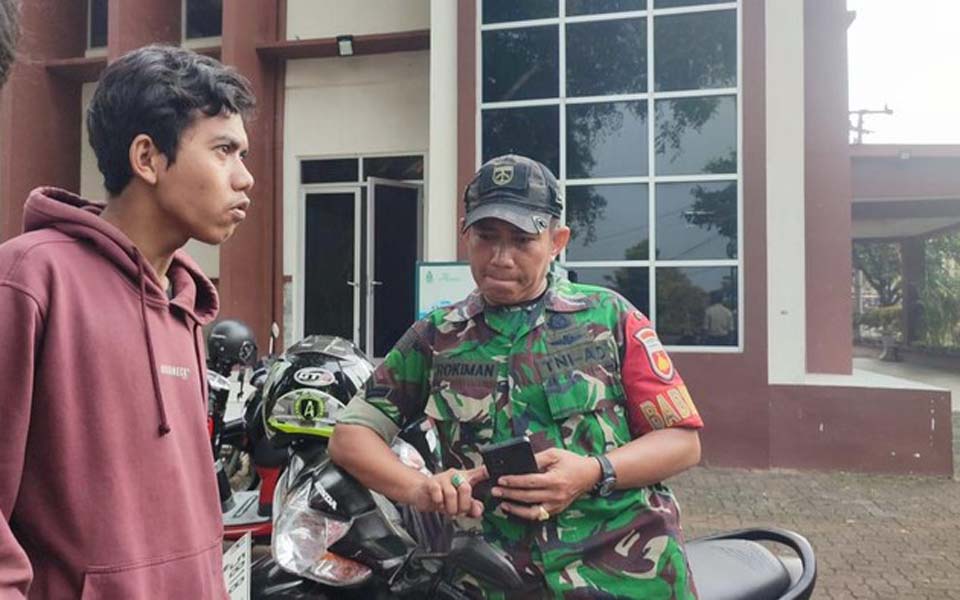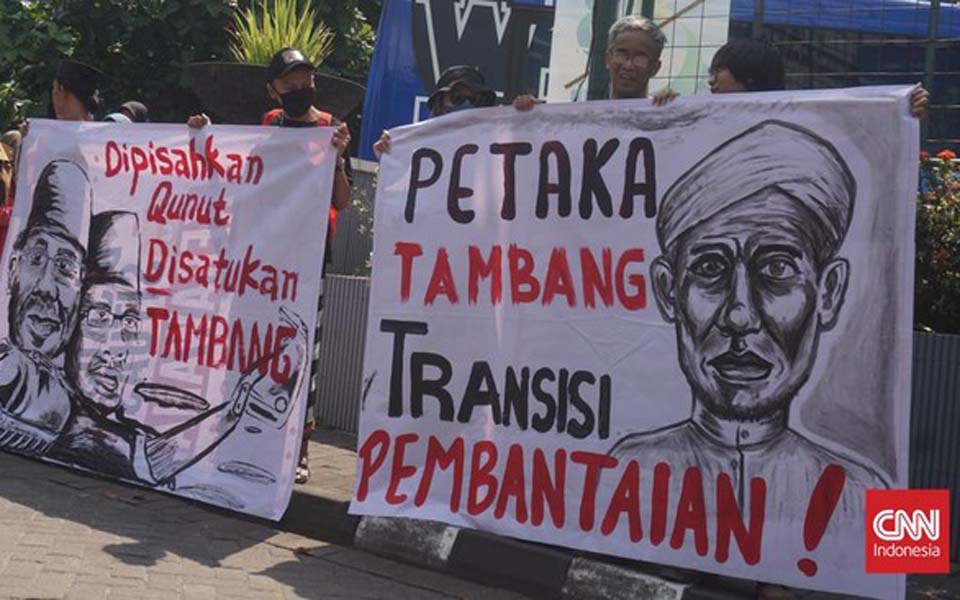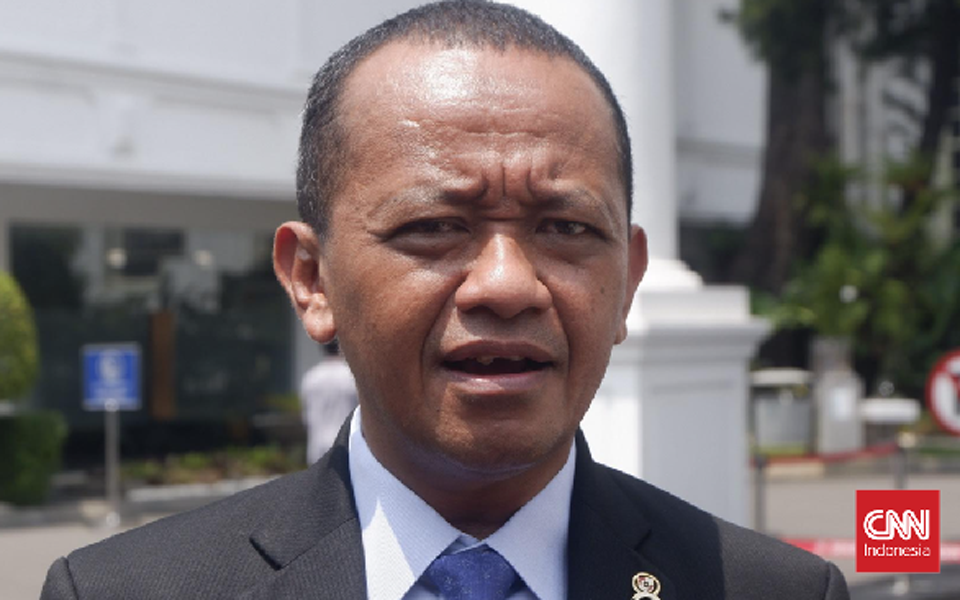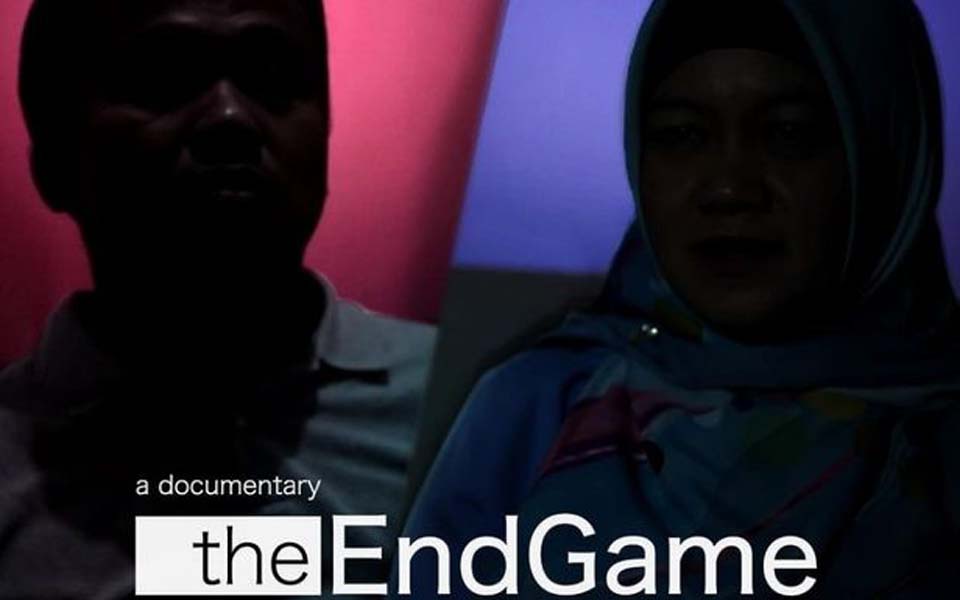The following is a joint statement by the Indonesian Legal Aid Foundation (YLBHI) and 15 Legal Aid Foundation (LBH) offices across Indonesia on the recently enacted Government Regulation in Lieu of Law (Perppu) Number 2/2017 on Social Organisations.
On July 10, 2017, the government enacted Government Regulation in Lieu of Law (Perppu) Number 2/2017 on Revisions to Law Number 17/2013 on Social Organisations (Ormas).
We, the Indonesia Legal Aid Foundation (YLBHI) and 15 Legal Aid Foundation (LBH) offices across Indonesia have closely followed the dynamics behind the issuance of the Perppu. At first glance the government issued the Perppu with the admirable intention of protecting citizen’s human rights. This can be seen from the clarification of several articles enshrined in the Perppu.
1. As if the state seeks to protect its citizens from discriminatory acts based ethnicity, religion or race so that the government seen as providing protection for citizen’s rights.
2. As if the state seeks to provide protection for citizen’s rights by guaranteeing a sense of security because it will act against social organisations that commit violence and are deemed to disturb public order.
3. As if the state seeks to provide protection for citizen’s rights by acting against social organisations that attempt to take over the role or authority of law enforcement by conducting sweeps, forcibly breaking up events and taking the law into their own hands (eigenrechting), even persecuting people.
4. As if the state seeks to provide protection for citizen’s rights to religious worship by acting against social organisations deemed to have misused, blasphemed or defamed the religions practiced in Indonesia.
5. As if the state seeks to protect the sovereignty of the nation by acting against social organisations that carry out separatist activities.
6. As if the state is protecting the national principles of the state ideology of Pancasila by acting against social organisations that spread teachings or ideas which are in conflict with Pancasila.
However after examining the articles found in the regulation we found at least six errors in the Perppu 2/2017:
1. In procedural terms the issuance of the Perppu failed to fulfill the three conditions set out in Constitutional Court ruling Number 38/PUU-VII/2009, namely an urgent need to resolve a legal conflict based on legislation, the existence of a legal void because required legislation does not yet exist or is inadequate, and a legal void that cannot be resolved through the normal legislative drafting process. Finally, these conditions were not fulfilled because no legal void existed in relation to the procedures for handing down sanctions against social organisations.
2. Freedom of association is a right that is enshrined in the Indonesian Constitution and other legislation that must be guaranteed and protected by the government. The Perppu contains restrictions on the freedom of association that are not legitimate. Restrictions on freedom of association can only be carried out when deemed necessary in a democratic society in the interests of national security and public safety, public order, the protection of health and public morality or the protection of rights and freedoms from others.
“National security”, means for example, in order to protect the existence of a nation or its territorial integrity or political independence against violence or the threat of violence. National security cannot for example, be used in the following cases[1]:
- As grounds to put into effect restrictions to prevent threats that are local in character or relatively isolated to issues of law and order.
- As a justification to put into effect restrictions that are vague or arbitrary and can only be put into effect when there is sufficient protection and effective rehabilitation for the violation.
3. The Perppu also confirms the arrogance of the state because it ignores and negates the legal process in freezing the activities of a social organisation.
4. The Perppu augments the criminal provision on “religious blasphemy”. A previously unfamiliar term in Article 156a of the Criminal Code (KUHP) along with Law Number 1/PNPS/1965 that was used as the basis for religious defamation in Article 156a.
5. The Perppu perpetuates the catchall articles inherited from the national revolutionary period, namely misuse and defamation of religion that results in a significant number of victims through various acts because indeed the definition of this provision is unclear. Yet the articles on the misuse and defamation of religion are often used by individuals and intolerant or radical groups to homogenise religious practices and beliefs.
6. The Perppu increases the criminal penalties for the misuse and defamation of religion from a maximum of 5 years to life imprisonment or a minimum of 5 years and a maximum of 20 years.
The state’s efforts to safeguard national sovereignty and the state ideology must be carried out in ways that are in accordance with the principle of a constitutional state as mandated by the Constitution. The historical use of repression has shown that it never succeeds in changing a person’s beliefs and can instead cause a person to harden their beliefs in something.
We are also convinced that the violation of one right will result in the violation of other rights because human rights are interlinked with other rights.
Based on the above, the YLBHI and the 15 LBH offices across Indonesia declare in the strongest possible terms their opposition to the enactment of Government Regulation in Lieu of Law Number 2/2017 on Revisions to Law Number 17/2013 on Social Organisations.
Jakarta – July 12, 2017
Signed:
- Asfinawati (Chairperson YLBHI Management Board) – 0812 821 8930
- Arip Yogiawan (Chairperson Networking and Campaign Division) – 0812 1419 4445
- Mustiqal Putra (Director LBH Banda Aceh)
- Surya Adinata (Director LBH Medan)
- Era Purnamasari (Director LBH Padang)
- Aditya B Santoso (Director LBH Pekanbaru)
- April Firdaus (Director LBH Palembang)
- Alian (Director LBH Bandar Lampung)
- Alghifari Aqsa (Director LBH Jakarta)
- Willy Hanafi (Director LBH Bandung)
- Hamzal Wahyudin (Director LBH Yogyakarta)
- Zainal Arifin (Director LBH Semarang)
- M Faiq Assiddiqi (Director LBH Surabaya)
- Dewa Adnyana (Director LBH Bali)
- Haswandi Andi Mas (Director LBH Makassar)
- Hendra Baramuli (Director LBH Manado)
- Simon Pattiradjawane (Director LBH Papua)
[1] See the Siracusa Principles on the Limitation and Derogation Provisions in the International Covenant on Civil and Political Rights.
[Translated by James Balowski for the Indoleft News Service.]















